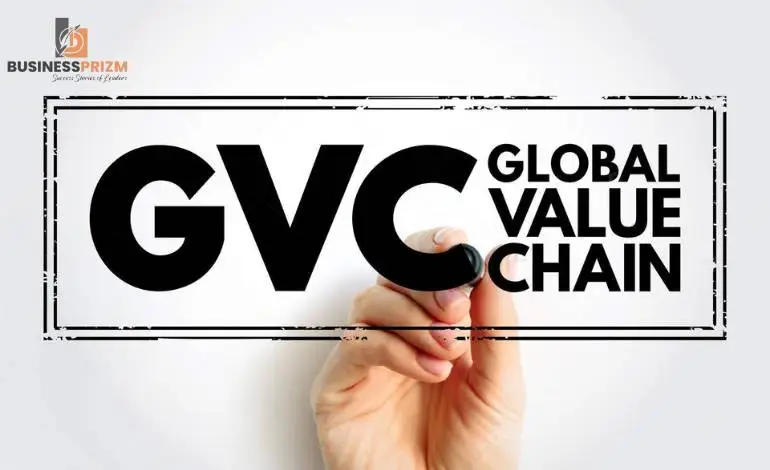The idea of the global value chain (GVC) is crucial in forming economies, industries, and companies in the connected world of today. Comprehending this complex web of production, distribution, and consumption is essential for businesses hoping to prosper in the global economy. Let’s investigate the elements, significance, and ramifications of the global value chain as we go deeper into its dynamics.
What is the Global Value Chain?
The set of operations involved in the worldwide production and distribution of products and services is referred to as the global value chain. It includes every step of the production process, from locating raw materials to delivering the finished product across multiple geographical areas. A variety of stakeholders are involved in this interwoven network, each of whom contributes value to the finished product: suppliers, manufacturers, distributors, retailers, and consumers.
Components of the Global Value Chain
Input Suppliers : The input providers, who offer the services, parts, and raw materials required for production, are the first in the GVC. These providers may be native or foreign, based on the affordability and accessibility of resources.
Production : Using manufacturing techniques, raw materials and components are turned into completed goods during the production stage. This stage frequently involves several sites across the globe, utilising resources including infrastructure, labour cost, and experience.
Logistics and Distribution : After the products are produced, they must be effectively delivered to a variety of markets. In order to guarantee prompt delivery to clients worldwide, logistics companies, transportation networks, and distribution channels are essential.
Marketing and Sales : In order to promote items and reach target consumers, marketing and sales activities are crucial. Businesses use a range of tactics, such as branding, digital marketing, and advertising, to build demand and increase sales.
After-sales Service : A crucial link in the global value chain is post-sale services like customer assistance, warranties, and repairs. Delivering superior post-purchase support amplifies client contentment and allegiance, so bolstering sustained prosperity.
Importance of the Global Value Chain
Market Expansion : By taking part in the global value chain, businesses can reach new clients and markets across the globe, which promotes revenue development and business expansion.
Cost Efficiency : Businesses can save costs and increase profitability by sourcing labour, supplies, and other resources from various nations based on which ones offer the best deals .
Risk Mitigation : Spreading out production and sourcing over several nations lowers the chance that natural disasters, geopolitical unrest, or unstable economies may disrupt the supply chain
Collaboration and Innovation : Working together, the global value chain’s stakeholders promote innovation, information exchange, and technology transfer, which boosts competitiveness and ongoing improvement.
Enhanced Competitiveness : Businesses that participate in the global value chain can take advantage of the knowledge, assets, and skills of various geographical areas, which gives them a competitive advantage in the marketplace.
Implications of the Global Value Chain
Supply Chain Vulnerabilities: Businesses that rely on international supply chains run the danger of experiencing supply disruptions, quality problems, and geopolitical conflicts. As a result, they must implement effective risk management measures.
Regulatory Compliance: Businesses that operate in several different countries must manage intricate legal systems pertaining to labour, intellectual property, trade, taxes, and environmental requirements.
Environmental and Social Impact: Businesses are being compelled to implement corporate social responsibility programmes, ethical sourcing methods, and sustainable practices as a result of the global value chain’s consequences for social responsibility and environmental sustainability.
Geopolitical Dynamics: Business operations, trade flows, and market dynamics can all be impacted by geopolitical tensions, trade disputes, and governmental changes that upset global value chains.
Technological Disruption: New developments in automation, AI, and blockchain are changing the global value chain and having an impact on supply chain management and production procedures.
-To sum up, the global value chain is an intricate web of interdependent activity that propels international trade, economic growth, and corporate competitiveness. Companies must comprehend its dynamics, significance, and ramifications in order to effectively navigate the opportunities and difficulties presented by the global economy. In the constantly changing global value chain, firms can prosper by embracing innovation, collaboration, and sustainability.










